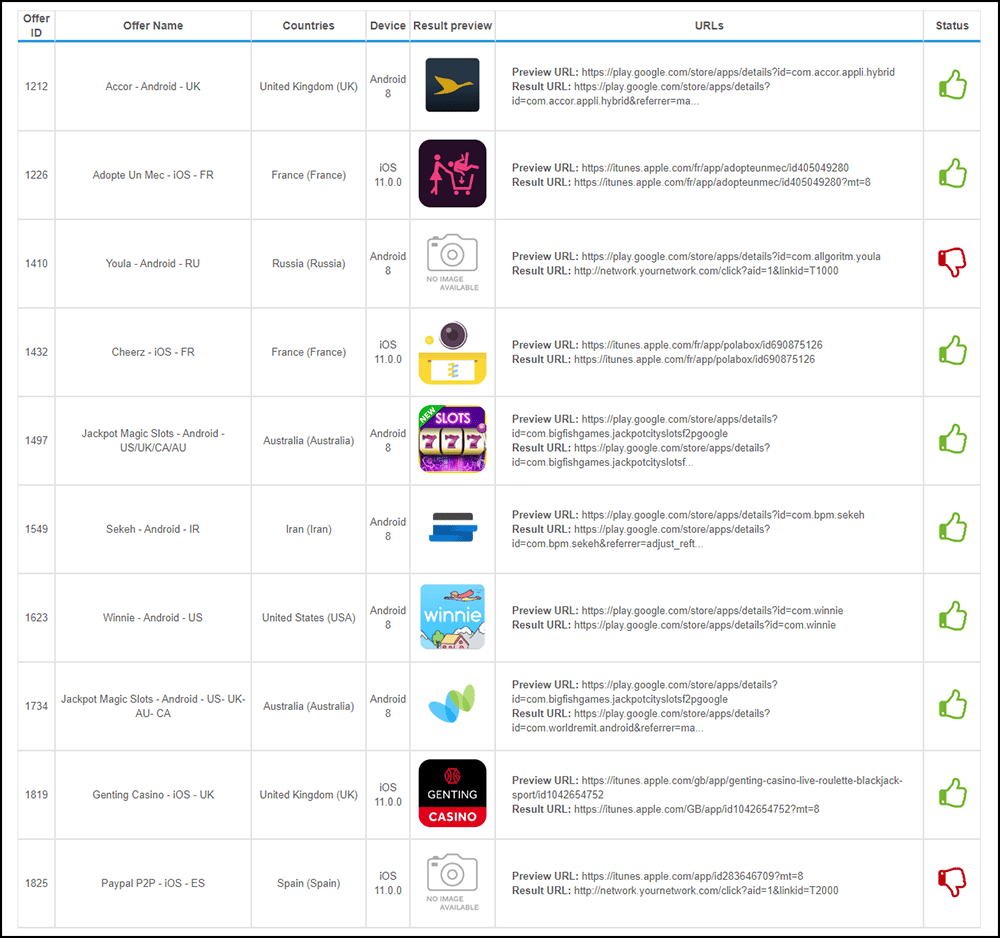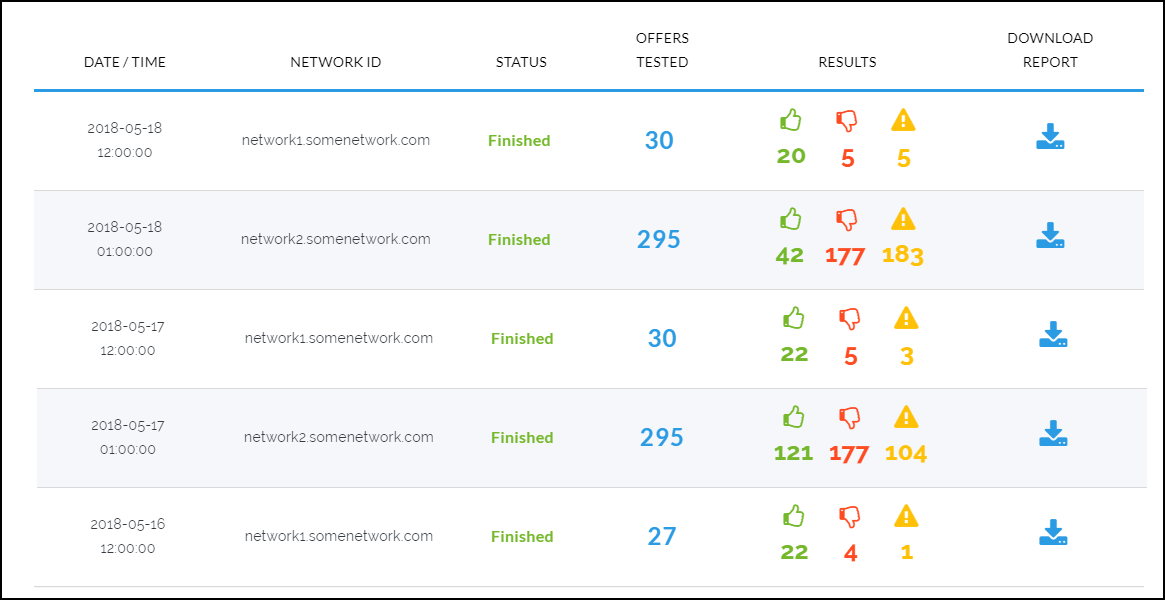![]()
As part of our commitment to empowering marketers to Do More With Less, Worry Free, the teams at TUNE are always searching for new ways to help our customers in their day-to-day tasks. In this post, a member of our Solutions Engineering team reviews how several tools can alleviate the biggest pain points of testing affiliate tracking links.
Dead links equal lost traffic for networks, which ultimately equals loss of revenue. This is why testing is a big part of the performance marketing industry. Trying links in various locations, checking that landing pages exist, making sure the entire flow is working — it’s not easy, but it allows network owners to verify their links are alive and prevent their traffic going to waste. Luckily, today there are tools for testing affiliate links that make this process easier.
In this post, I’m going to outline the main challenges of testing affiliate tracking links, and then review how new tools are popping up to address these challenges to make the entire process easier.
Affiliate Tracking Links: Essential, But Often Unpredictable
This year, many TUNE customers will forward billions of clicks via their networks. But it’s not always possible for them to monitor all of that traffic in the most efficient way to maximize revenue. Why? Networks give up some control when tracking links are taken from advertisers and offers are brokered. This means the network may not be notified when an affiliate link is being blocked (due to a cap limit, for example), leads to an offer that has expired, or is broken for a different reason.
All of these problems result in low conversion rates for networks. And all of these problems originate with affiliate tracking links.
Testing Pain Points
When testing tracking links, the main challenge networks face is accounting for offer restrictions, specifically those related to geotargeting and device type (offers targeted for the United States versus the United Kingdom, iOS versus Android, etc.). For this reason, it is necessary to test using services that both allow connections from different locations and emulate different devices.
Services such as VPN, proxy, and residential proxy are technologies that can help network managers test their links from different locations. However, using these services to test multiple links at once can be a painful process: reconnecting to a different server location, testing only links that pertain to that location, and then repeating these steps over and over again, one location at a time. This testing method consumes a lot of resources, especially when done manually.
New Affiliate Tracking Tools Are Here to Help
Over the last few years, several companies have emerged with the goal of improving the essential but painful task of testing by enabling networks to automate the process. Most of the new companies are using residential proxy servers.
Residential proxy servers relay traffic to home devices physically located around the world and connected to the internet via the devices’ web browsers. This means tests can be performed from a regular user device in almost any location, allowing the flow of the test to emulate as close as possible a real click, from a real device, from a real location.
Some of the most well-known companies on the market that provide affiliate tracking link testing services via residential proxies are AnApps, AffiliTest (a TUNE technology partner), and Offertest. Most of these offer different types of services, which range from simple to advanced:
- Simple services include manually testing links from the company website/app or via API to automatically run tests from a script.
- Advanced services include granting permissions to use the network’s API to automatically test all links from that network and make respective changes (pausing or redirecting offers) if the links are not landing on the correct web page.
As an example, we’ll look at how the RDVerifier App from AnApps works.
First, the app would be connected via API to the network looking to use it to test. Once implemented, the service works by grabbing tracking links from the network, testing them on an hourly, daily, or monthly basis, and comparing the resulting live URLs to the preview URLs provided by the network.
The app then generates a report that shows when an affiliate tracking link is a match or a mismatch:

Residential proxy services like those provided by AnApps are helping to make the affiliate tracking link testing process easier for affiliate networks. Source: anapps.online
The app can also automate this process over regular periods for multiple networks or link groups:

By automating the link testing process, solutions like the RDVerifier App can save performance marketers significant time and money. Source: anapps.online
Final Thoughts on Affiliate Tracking
Thanks to new testing technologies and companies like AnApps, controlling affiliate traffic and avoiding dead offer links is becoming an easier, less time-consuming process — one that can help network owners maximize their return on investment and focus more on their most valuable partnerships.
Want to learn more about affiliate marketing, affiliate tracking links, and testing? Check out the technical documentation on our help site or ask us a question in the comments below.
Author
Becky is the Senior Content Marketing Manager at TUNE. Before TUNE, she handled content strategy and marketing communications at several tech startups in the Bay Area. Becky received her bachelor's degree in English from Wake Forest University. After a decade in San Francisco and Seattle, she has returned home to Charleston, SC, where you can find her strolling through Hampton Park with her pup and enjoying the simple things between adventures with friends and family.


